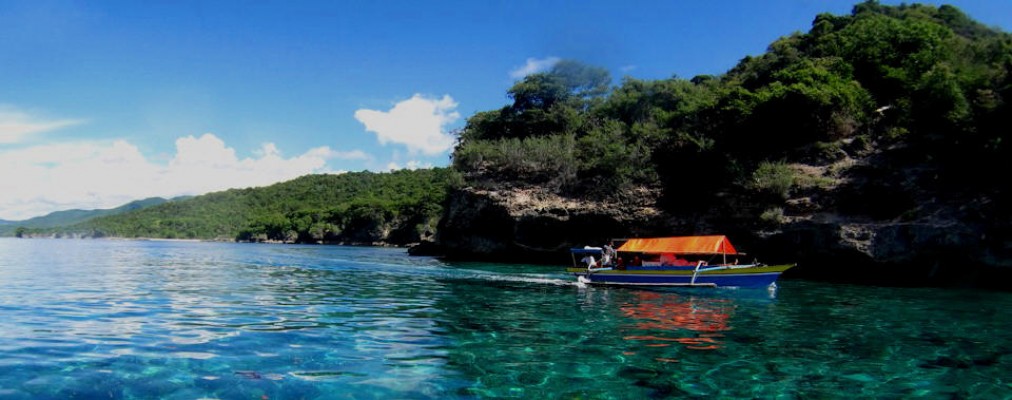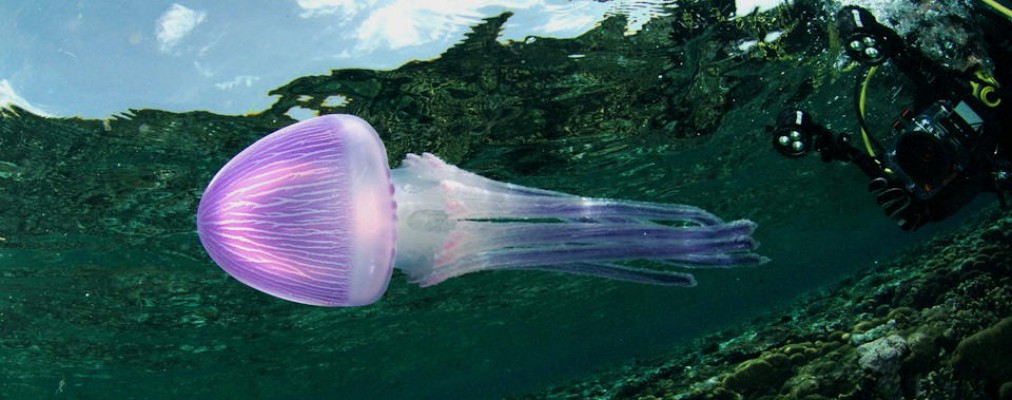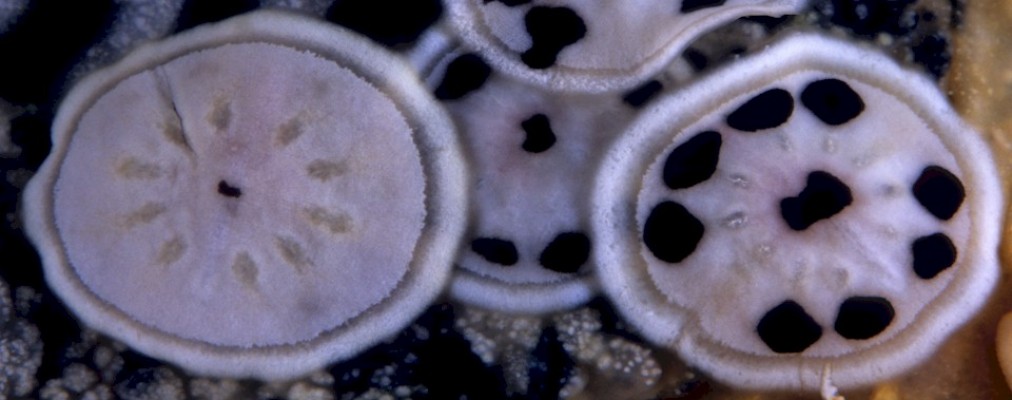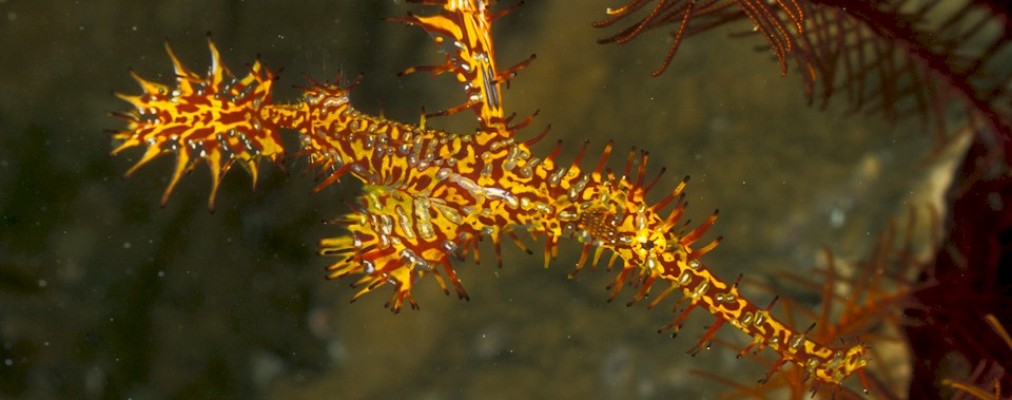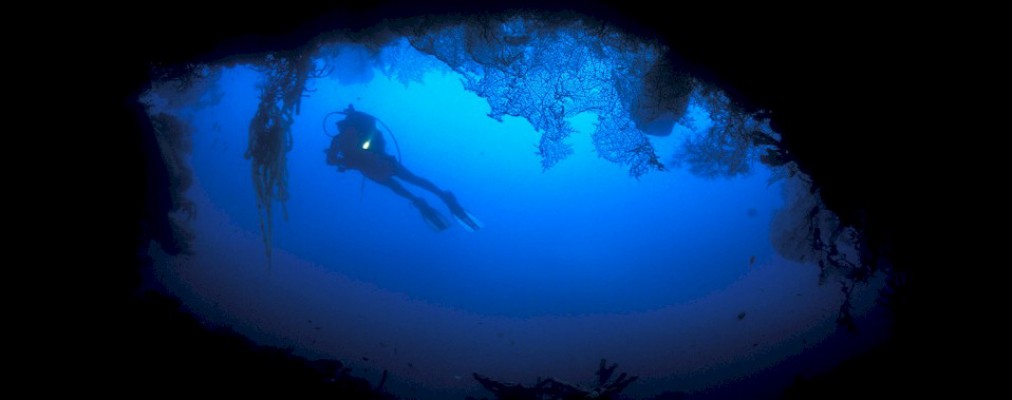Loading content - please wait...
Clownfish eggs delight scuba divers
Clownfish eggs delight divers who happen to spot them. The parents will lay a patch of eggs close to an anemone. That anemone serves as their protective residence.
Clownfish Eggs from Light to Dark
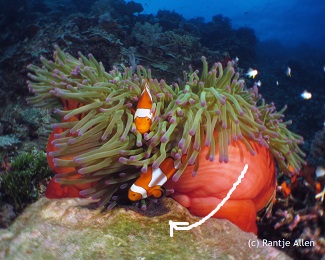
When mating time approaches
, the male clownfish will select a place for the female to lay her eggs. Moreover, the place will be close to the protective cover of their host anemone. He will clean the area, removing debris and any algae there. When the female is ready, she will join the male and inspect the location. She will deposit from 400 to 1,000 eggs in a patch. The male will fertilize them immediately. Each egg will measure about three to four millimetres in length.After that
, the male will tend the clownfish eggs. He will fan the eggs with his fins and clean them with his mouth. Also, he will eat any infertile eggs. New eggs are brightly colored from yellow to red. This depends on the species. However, as the clownfish eggs mature, their color darkens noticeably. This process takes about six to eight days to mature. Prior to hatching, the eggs become transparent. At that time, divers can the eyes and mouth of the new Nemos inside the eggs.Clownfish eggs will hatch a few hours after dark. Research shows that these eggs will not mature in the presence of light pollution. The new larvae or fries swim in the free ocean and eat plankton. Those that survive will seek an anemone to call home. As they grow
, they gradually acquire immunity to the stings of their host anemone. Researchers disagree on how immunity is acquired.Transgender Rules
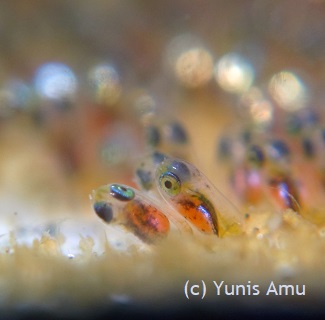
The largest clownfish in a colony will be the female. All nemo fries are male. If the female dies or is removed, the dominant male will become female. That means that clownfish are hermaphrodites.
Because these fish live with anemones, some people call them anemonefish. Also, many people call them Nemo, a name that people easily recognize.
Clownfish of Gorontalo
Clownfish live in Asia Pacific waters where the species number twenty-eight. The clownfish from the Nemo films is the False or Western clownfish (Amphiprion ocellaris). Almost identical is the Orange or Eastern Clownfish (Amphiprion percula). Sulawesi marks the transition area between western and eastern species. Both of these have been photographed in Tomini Bay where Miguel’s Diving operates.
The Eastern clownfish looks different than the western species. Its black edging is noticeably thicker. Also, the eastern species has an orange iris. This makes its eye look smaller.
For your chance to see clownfish eggs, please book your dive trip with us.
